Tommy Dorfman and Memphy Take Over


It’s past working hours at the ELLE office in Midtown Manhattan, and by now, most of the editors have gone home. The coffee machines are off and the computer monitors are dark, but the floor is aglow with bright flashes from actor-writer-photographer Tommy Dorfman’s camera. “You’re killing it!” shouts Dorfman, hyping up model-DJ Memphy who is, in fact, killing it while posing atop a table in a conference room with Central Park views.
The multi-hyphenates, who are both trans women, took over our space after-hours to produce and star in this exclusive photo essay for Affirmed, ELLE’s series exploring all the ways in which people receive gender-affirming care. For Dorfman, who will make her directorial debut at SXSW today with the film I Wish You All The Best, being behind the camera is the ultimate form of affirmation. And Memphy, an international fashion model who moonlights as a globe-trotting DJ, feels most herself while on the other side of the lens. Below, a conversation between Dorfman and Memphy about affirmation through art, navigating the pressures of trans excellence, and the power of working with other trans creatives.
Tommy Dorfman: This package is about affirmation, so I wanted to ask about the first time you truly felt affirmed and whether that was self-affirmation or if it came from an outside source—or a combination of the two.
Memphy: I feel like there are different levels of affirmation, right? For me, I started transitioning when I was 14, and I went to the same school from sixth until 12th grade. So everyone saw me transition. It was a lot. I remember feeling affirmed when people started using the right pronouns when I was younger. Then I felt affirmed when I graduated high school and was living my life as an adult woman. Like, I am who I am now. I don’t have to prove myself to people. I also started modeling at 17. I felt affirmed when I signed to my currency agency, New York Models. They saw me as the superstar I intended to be and helped me reach these goals that I felt were unattainable. It’s not just about being trans, but about being a career woman and growing up and being successful.
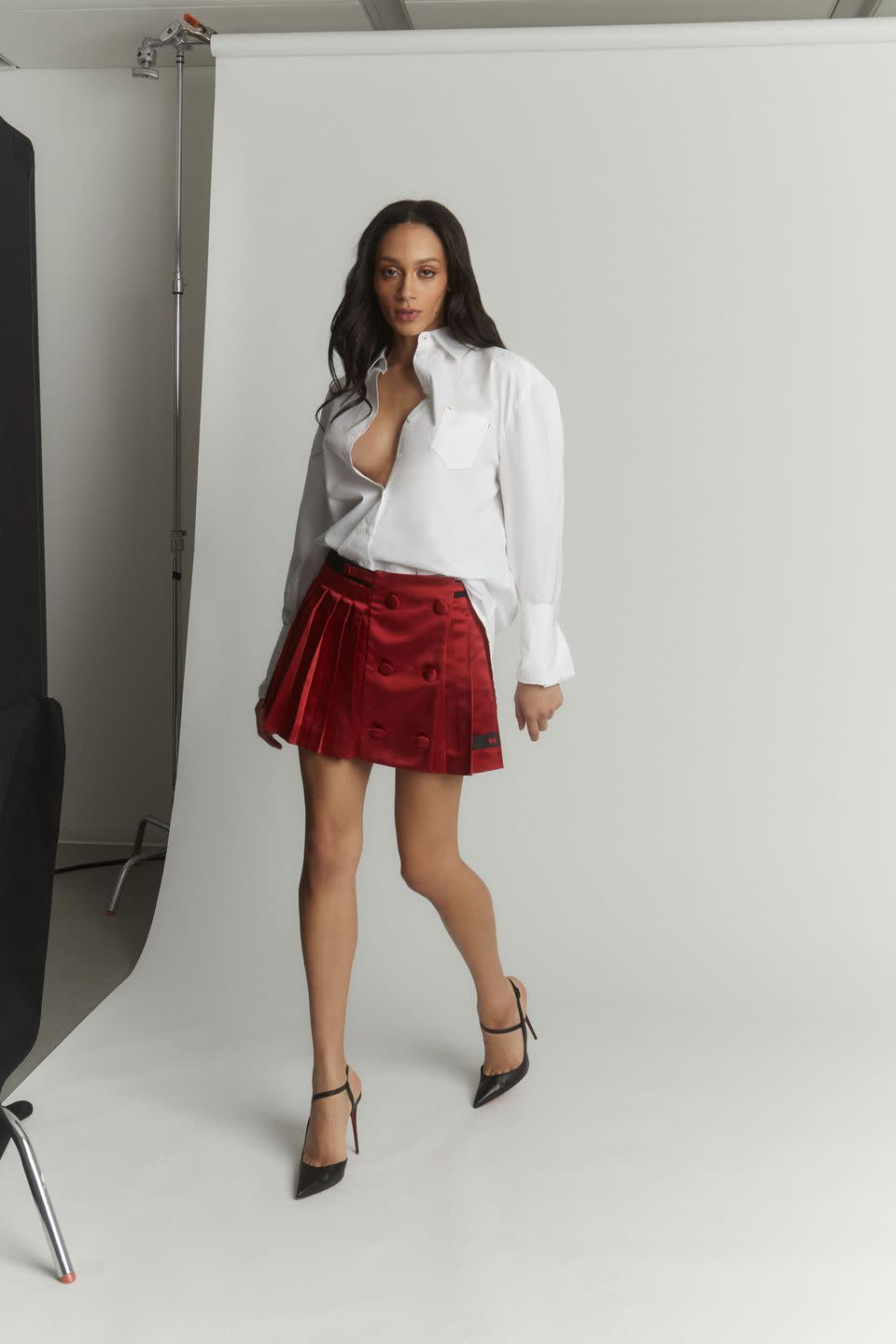
Dorfman: I feel the same way. Financial independence can be so liberating; it can be really hard to get to that place as an artist. I also found when I came out more publicly as trans, most of my work was essentially modeling. I was writing and working on getting a film made, but I didn’t feel ready to step into an acting role. I wanted to fulfill the physical transition and the medical transition just a little bit more. But I was totally comfortable modeling, and it was necessary, because I needed income. I didn’t expect, when I was doing all of these photo shoots or video campaigns, to feel so affirmed by what was reflected back to me. It’s such a unique experience to be transitioning publicly. It’s a unique experience to just be a trans model or actor, period. Sometimes I’ve worked with different photographers or directors that make me feel less affirmed or dysphoric. For you, what has that balance been like? How do you handle those situations?
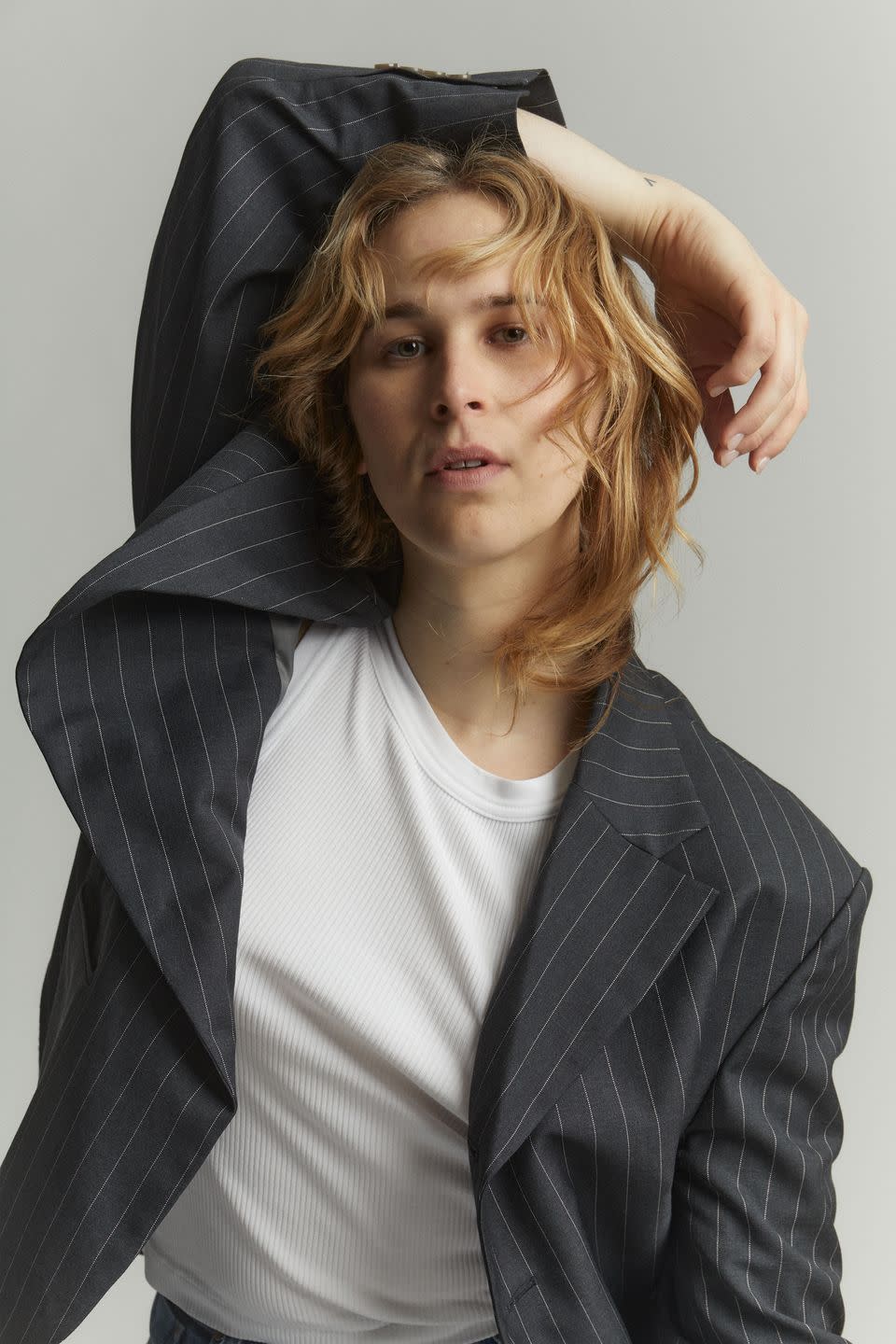
Memphy: Well, when I first started modeling, I was with a smaller boutique agency, and at the time, I had colorful braids, I had my eyebrows pierced, my lip pierced, and I was really experimental. I feel like my agents were definitely trying to push this edgy New York downtown girl who’s kind of punk—not so much a classic beauty. That definitely made me feel less affirmed, because when I would get these images back, the way I was being presented wasn’t the goal I saw for myself. I left that agency and started working with New York Models, and it was a huge transitional phase; I changed so much in my look. I felt like more of a grown woman. At 20, I got top surgery. Having those images where you have the look you wanted, you start to feel so much more affirmed in the images you’re getting back. I definitely felt more confident, because that imagery was reflecting how I felt.
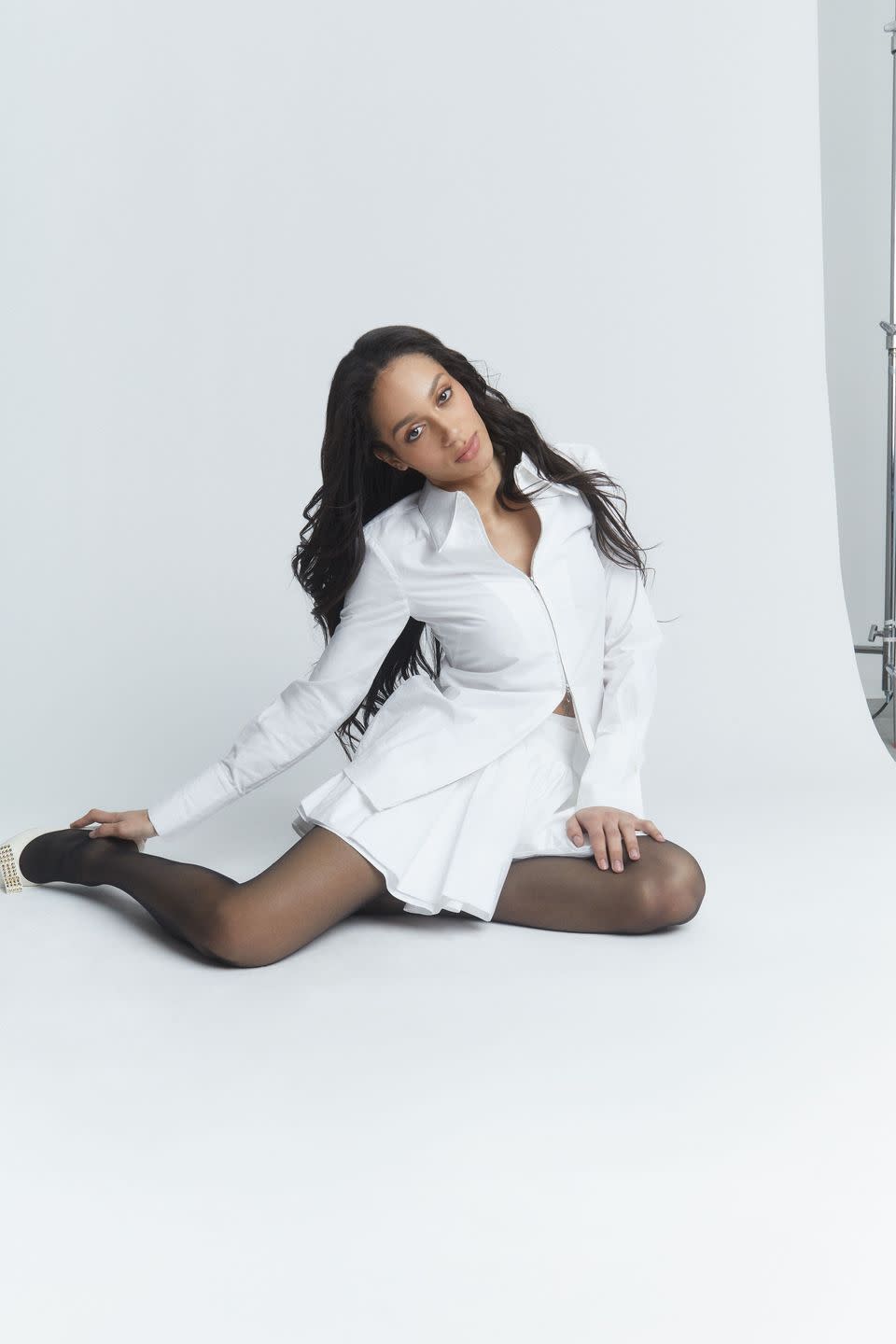
Dorfman: Often I feel so grateful to be in a digital age, but it’s a bit of a curse to have worked so publicly prior to transitioning, because if you Google me, it’s mostly boy photos that pop up. It took years for Wikipedia to change my photo, which feels crazy, because they changed my pronouns in two seconds. It felt really strange to me that it took that long to feel affirmed in that way. But at the same time, it does feel like a gift to have a time capsule of my trans puberty. Part of transitioning was realizing I couldn’t feel affirmed through “passing,” because passing felt unattainable due to my circumstances. In terms of work, I feel liberated that passing isn’t the end all be all.
Memphy: Totally. In my experience, as someone who would be more “passing,” even regardless of that, the images still weren’t reflecting how I felt. When you’re a trans person in the media, people want to keep you in that box of being this political, against-the-grain public figure, instead of just letting you be a supermodel and a successful woman. It’s like, no, you’re a successful trans person, and you’re doing X, Y, and Z to push these boundaries. And I am obviously doing this type of work to push boundaries, but it can be tricky when people only see you as that.

Dorfman: 100 percent. So often, we are politicized just by existing.
Memphy: It creates so much more pressure too, because you’re like, shit, I have to live up to all these expectations and standards. People put so much pressure on you to be this amazing leader of hope—and that expectation makes you want to go harder. But is it because you want to go harder for them, or do you want to go harder for yourself?
Dorfman: Have you found that more success comes with backlash from the community at all?
Memphy: Definitely. I have trans friends who are in every stage of their transition. I talk with them, and they’re like, it sucks that most of the trans girls right now in the industry are cis-passing and don’t really reflect the full spectrum of trans beauty. And sometimes I feel guilty, because it makes me feel like I’m participating in that. But I also feel like the fact that there are even trans people at these photoshoots to begin with is such a big milestone, and things will get better over time. I think our industry, although it portrays itself as super progressive, still isn’t necessarily ready to push the boundaries that much. Even for me, most of the models right now who are really successful are white, cis-passing, blonde-haired, blue-eyed, or brown-haired girls. I’ve felt so much pressure, because I’m one of the only Black trans women in the modeling industry at the moment. Not only are you Black and a person of color, you’re also trans, and you’re filling these brands’ agendas, which can be a weird intersectional issue.
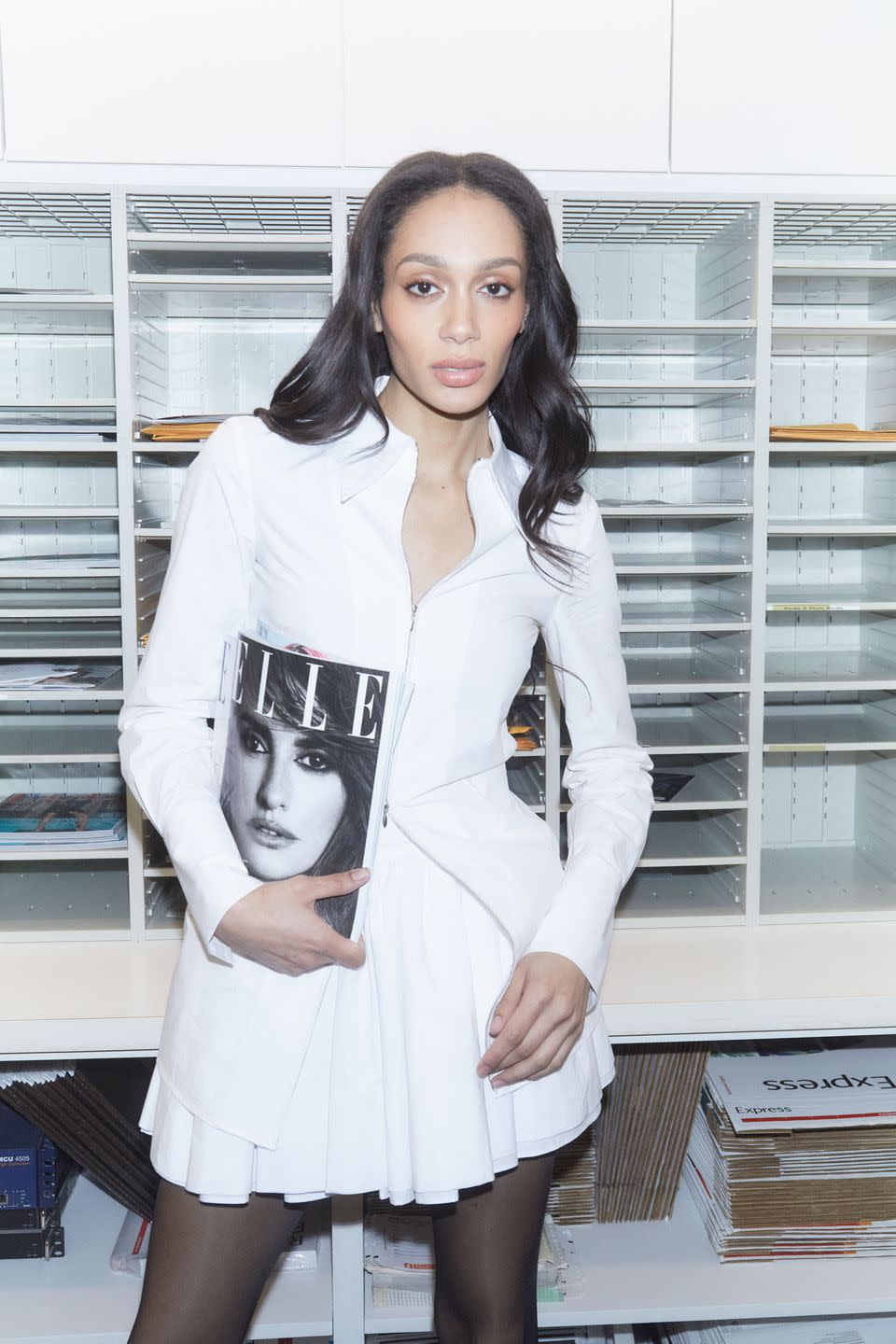
Dorfman: I think being a history-maker, being the first is not necessarily good all the time. Sometimes it can feel detrimental or like a responsibility you didn’t really ask for.
Memphy: Like you’re going on set, and you’re one of the first people to do this. Of course, there are going to be people who don’t understand. Of course, there are going to be issues on set where they try to push you to do certain things or they just expect you to be a certain way. People are walking on eggshells, because they’re like, oh my God, she’s Black, we don’t want to piss her off. But it’s like, girl, chill. I’m not here to be like, oh, if you fuck up, I’m going to call you out, all this crazy shit. The fact that I’m even here is enough social work for me.
Dorfman: Right. Outside of work and opportunities, do you have tools that keep you feeling affirmed?
Memphy: I always have my hair laid [laughs]. Little things like that. Beauty, making sure I take care of my skin, eating good, drinking a lot of water, making sure that rent is paid, having a roof over my head, my family loves me. That’s what keeps me feeling affirmed, really. I just started dating a new guy. Dating as a trans person can be hard; I finally found someone in my life who doesn’t see me as just a trans person.
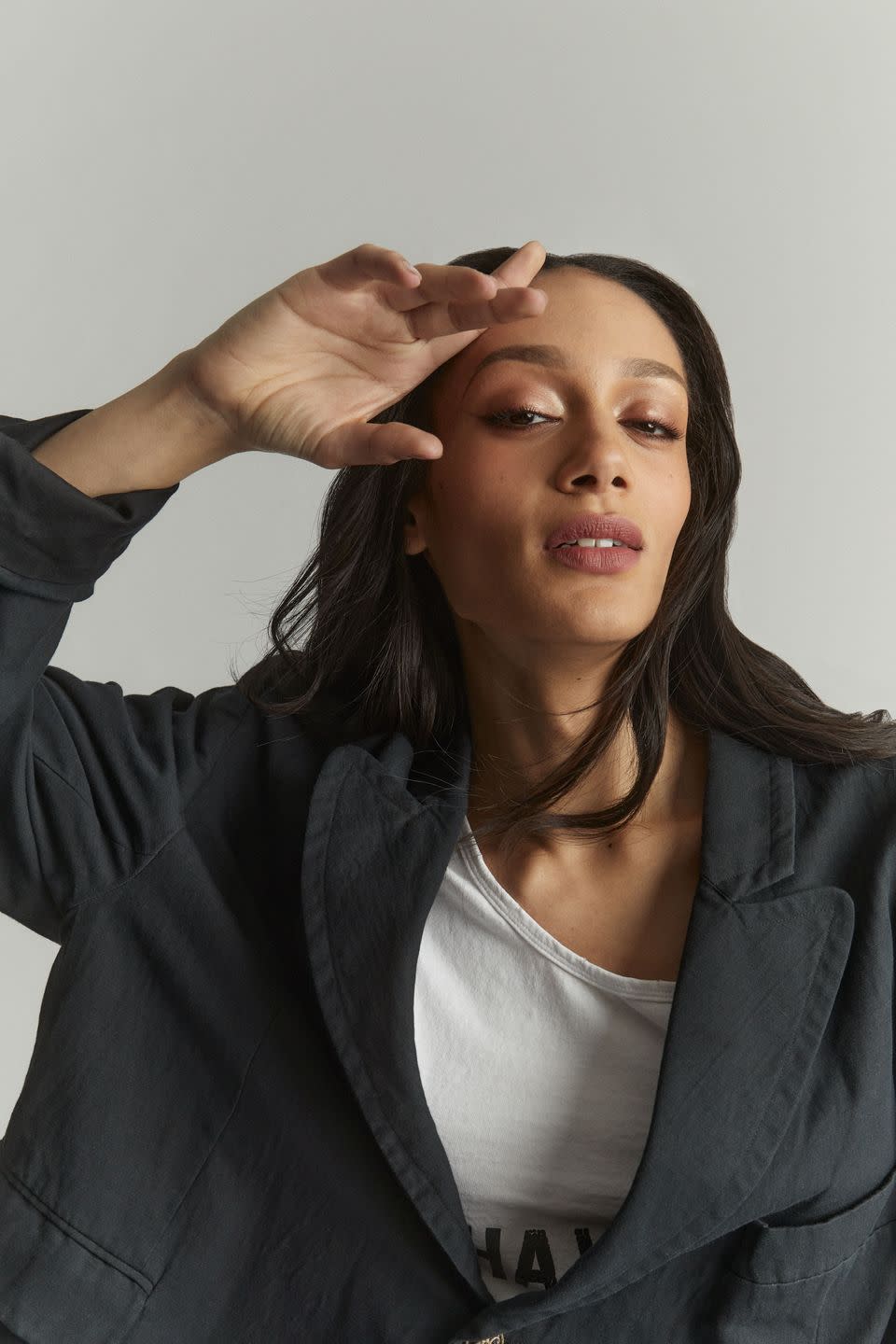
Dorfman: That’s really beautiful. For me, sometimes even when the outside stuff is looking really good, my inside doesn’t always feel great. Sometimes I have imposter syndrome around work or career. So when things are going really well, I’m waiting for the other shoe to drop. But I think a big reason I’ve transitioned, career-wise, to being behind the camera is because I find it really affirming. There’s more autonomy in that. I’m not beholden to someone else’s vision. Of course, you’re always collaborating, but it doesn’t have anything to do with how I present or being trans necessarily. It can be so liberating to be photographing or directing films or working with people behind the scenes, because it removes my identity from it.
Memphy: I also get that feeling of imposter syndrome, like, when is this shit going to hit the fan? Do you ever feel like being trans in this industry heightens that feeling and makes you feel like there’s so much more on the line? If I’m not successful, if I don’t do this, I’m not going to be this expectation of trans excellence. I feel like that’s where my anxiety comes from a lot of the time.
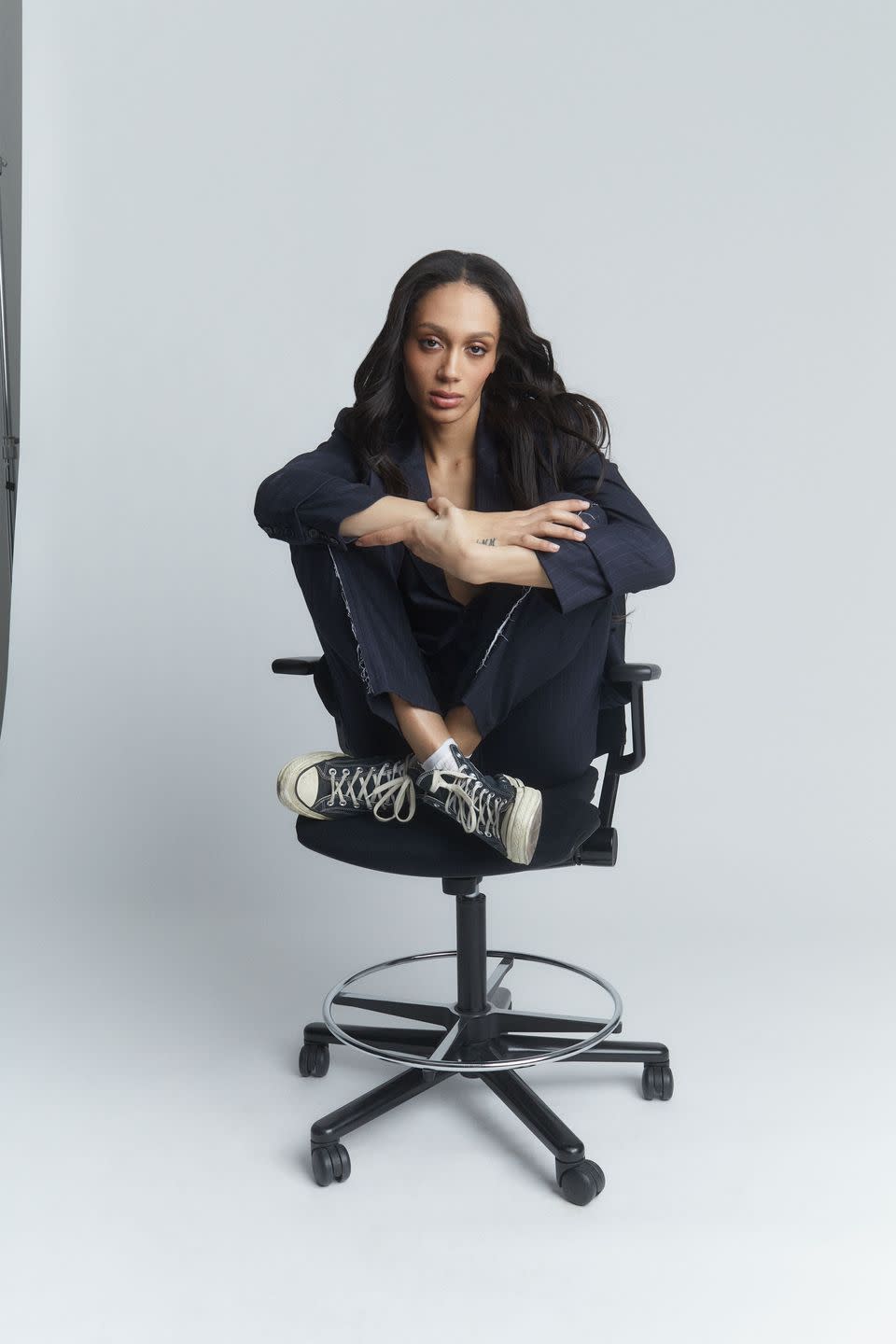
Dorfman: Yeah, it doesn’t feel like I have the same privileges as my cis colleagues in terms of longevity. It feels like I have this internal motor that never quite slows down, because there’s already a scarcity mindset.
Memphy: Totally. The pressure’s really on. Because of our identity and the way we navigate life, one little fuck-up could fuck it up for so many other people.
Dorfman: And we all feel the reverberations of these things, whether it’s a fuck-up or you’re speaking up for yourself or it’s something completely out of your control. The internet can blow something out of proportion or re-contextualize it, and it can affect a whole community negatively. I think I have a big fear of slipping. It also feels like there’s only one window of opportunity. But ultimately that’s where self-affirmation comes in for me: simplifying things, taking a beat, reassessing, doing my gratitude list, looking at all of the beauty in my life that isn’t directly correlated to my work, reminding myself that, no matter what, I’ve made some impact, and it’s going to be okay. I have no other choice but to continue moving forward.
Memphy: Literally.
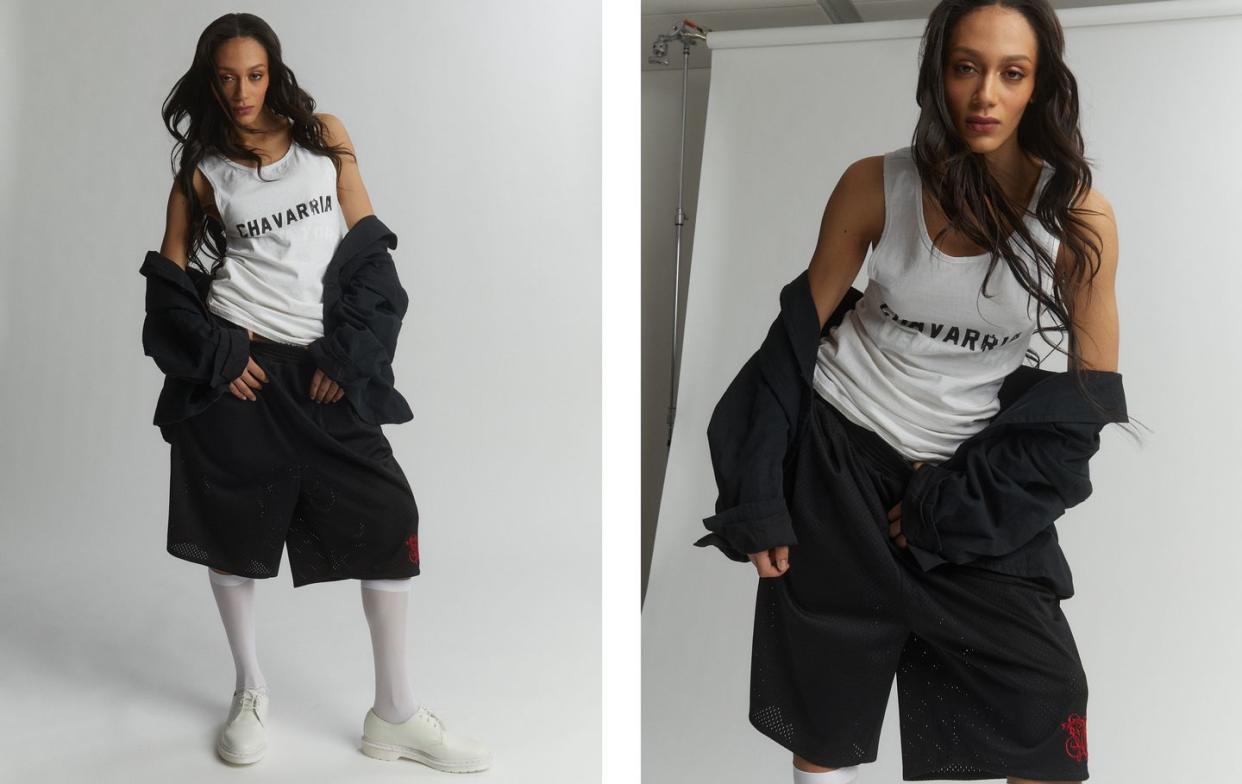
Dorfman: I think a lot about preserving self and safety and affirmation and working on setting boundaries to protect myself in different scenarios. Do you have any tools that you use for boundary setting or protecting your energy?
Memphy: For me, whenever I have a meeting with my agents, I’m like, okay, this is the work we were doing, and this is what I want. How can we figure out how to get to where I want? When I’m on set, I look at the styling, and then we figure out the styling together versus just: “This is the styling. You play this role.” Incorporating my own opinion into the work that I do is so important to me, because it makes me feel like I have agency over what I’m putting out.
Dorfman: That is boundary setting. People often mistake setting a boundary for diva behavior in our industry, but it’s actually about preservation.
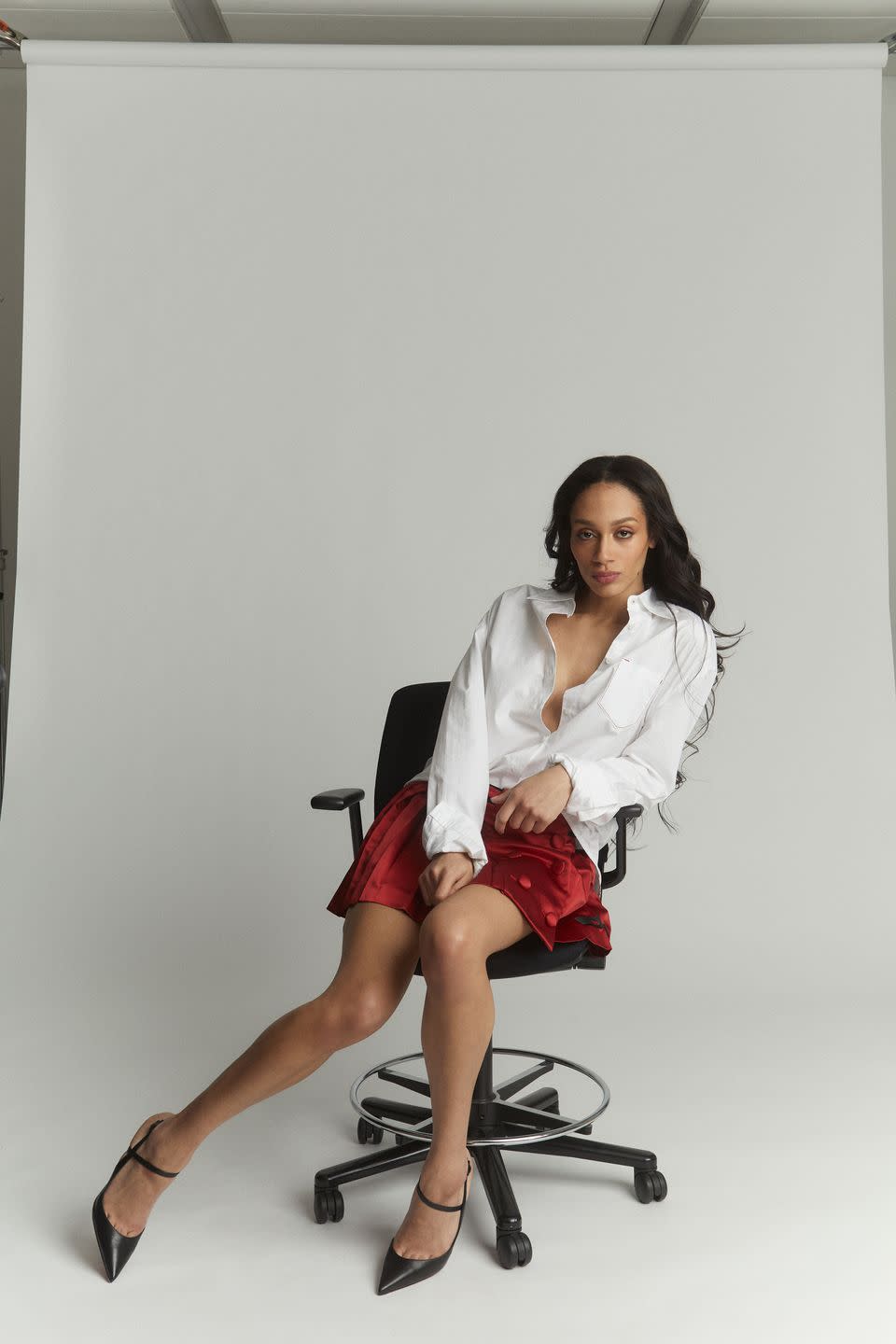
Memphy: For sure. I’ve been on set sometimes, and there’s a huge wig and all this crazy makeup, and I’m like, are you trying to make me look beautiful and powerful? Like sis, I’m pretty. Don’t forget that I’m also a pretty person. I feel beautiful. I feel glam. You don’t have to put a huge wig and 10,000 layers of makeup on me. I’m not a drag queen; I’m a woman.
Dorfman: I feel the same way. When we were talking about this ELLE shoot, I said I really wanted it to be simple and beautiful. I know it’s rare for trans people to be photographed not in high-glam, high-camp performative spaces.
Memphy: And I loved it, and I felt so beautiful.
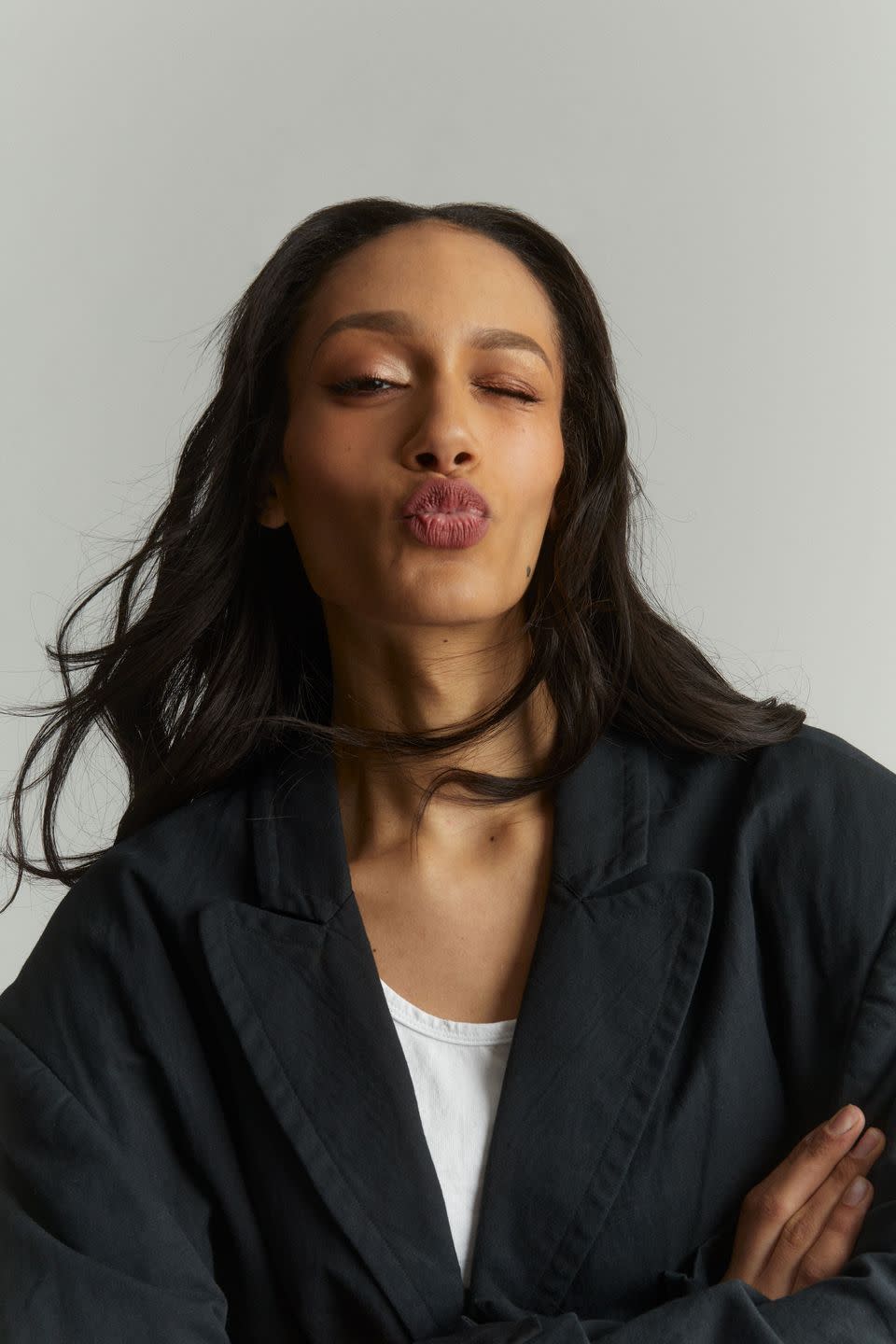
Dorfman: I’m glad. I think it’s so rare that we get to just do portraits or play around in the office, if you will, but not have it be—
Memphy: Camp.
Dorfman: Yeah. Which is a moment, and it’s great. Sometimes stories require a lot of makeup and glam. But I think, here, we achieved a certain type of intimacy. And I love getting to work with other trans people.
Memphy: Because there’s someone else there who understands your thought process.

Dorfman: That’s why, behind the camera, I’m so focused on different types of trans stories, because I want it to be a good experience for other trans people who I work with. The few times I’ve worked with trans directors or trans photographers as talent, I’ve always felt so safe and affirmed, because I didn’t feel like I had to prove anything. I knew they saw me for all that I am. I didn’t have to put on some kind of performance of femininity. It’s really just about being seen and understood.
This conversation has been edited and condensed for clarity.
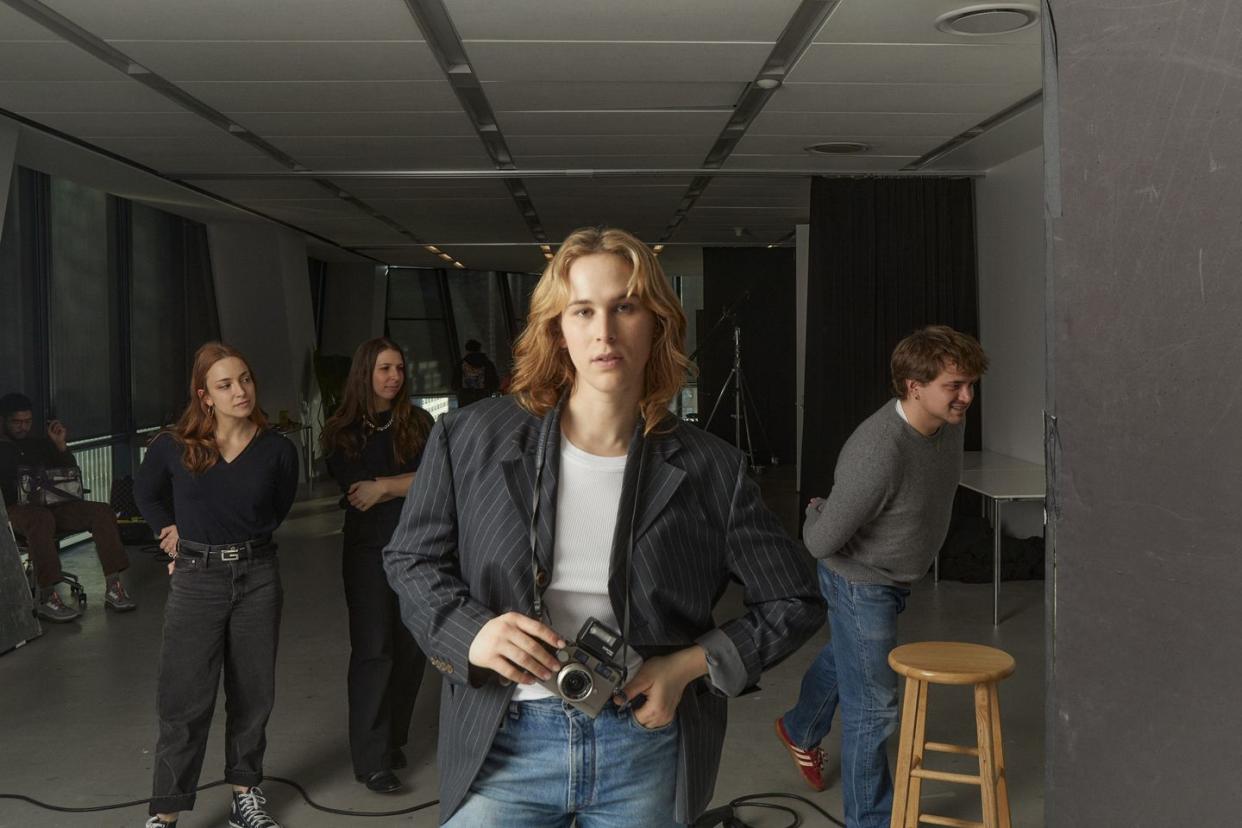

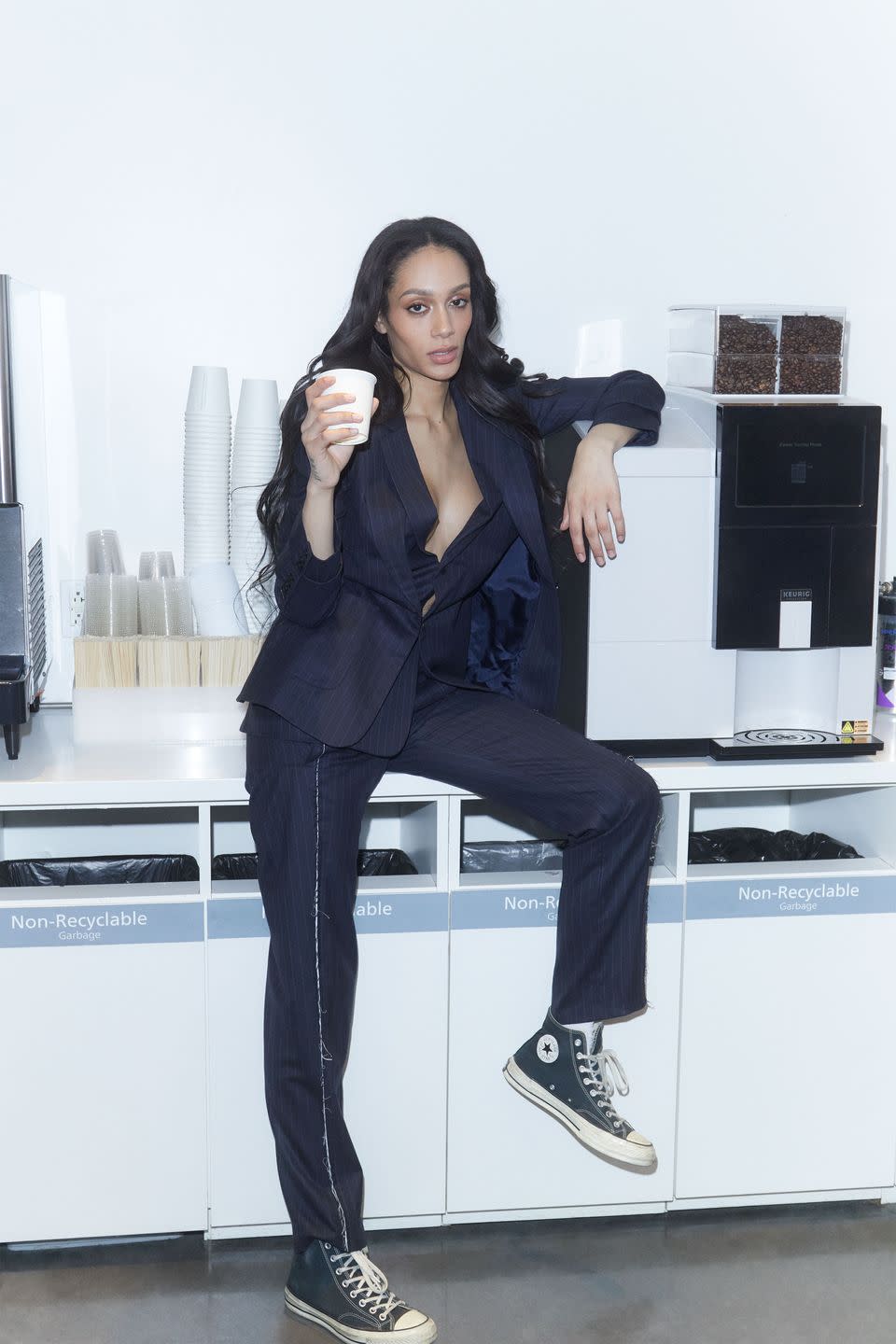


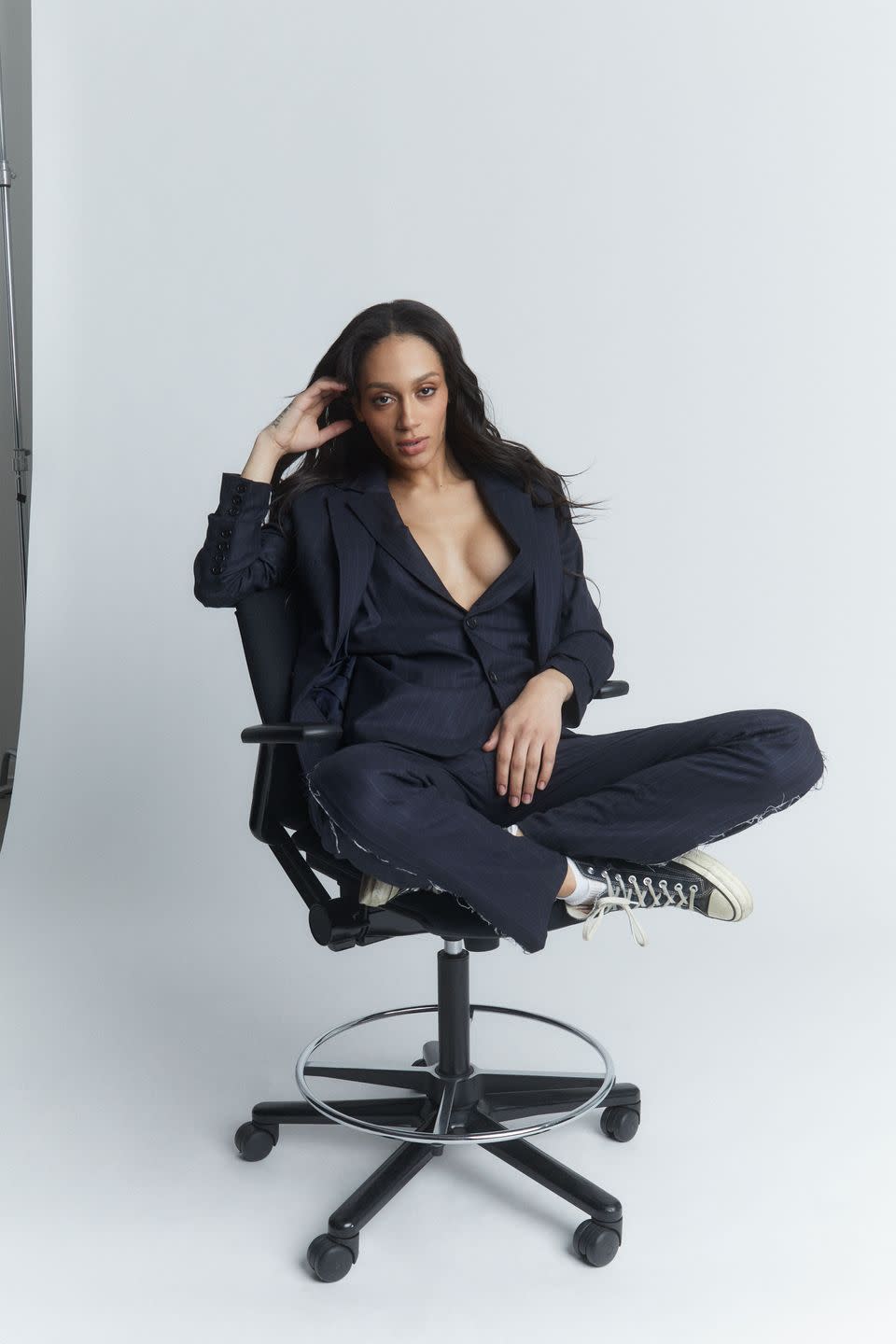
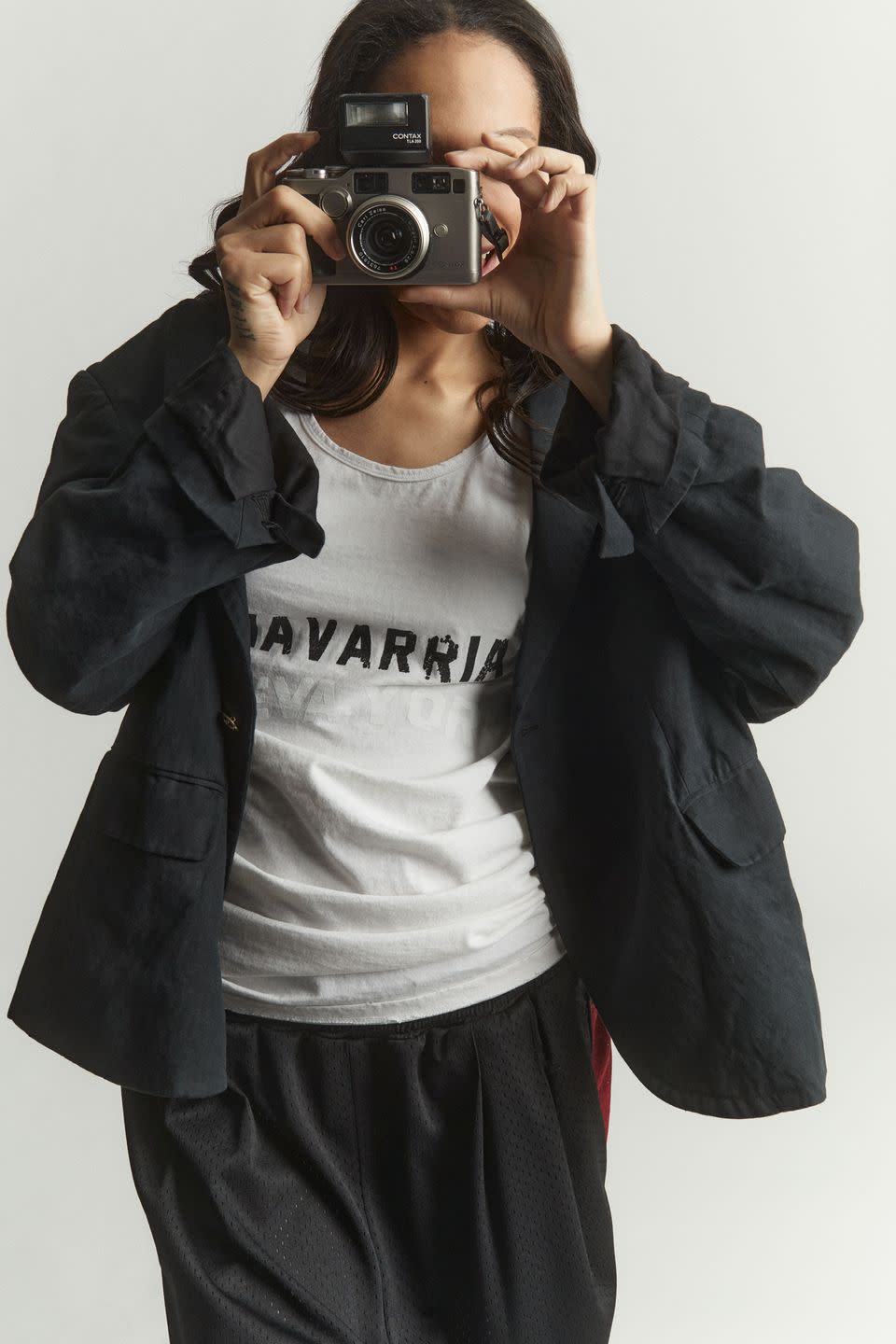
Hair by Romina Manenti at Home Agency; makeup by William Scott at The Wall Group.

This story is part of ELLE’s Affirmed series helmed by guest editor Tommy Dorfman that explores gender-affirming care in all its many forms. All stories were done with support from GLAAD, and all illustrations were done by Anshika Khullar, an Indian, nonbinary transgender artist.
You Might Also Like
